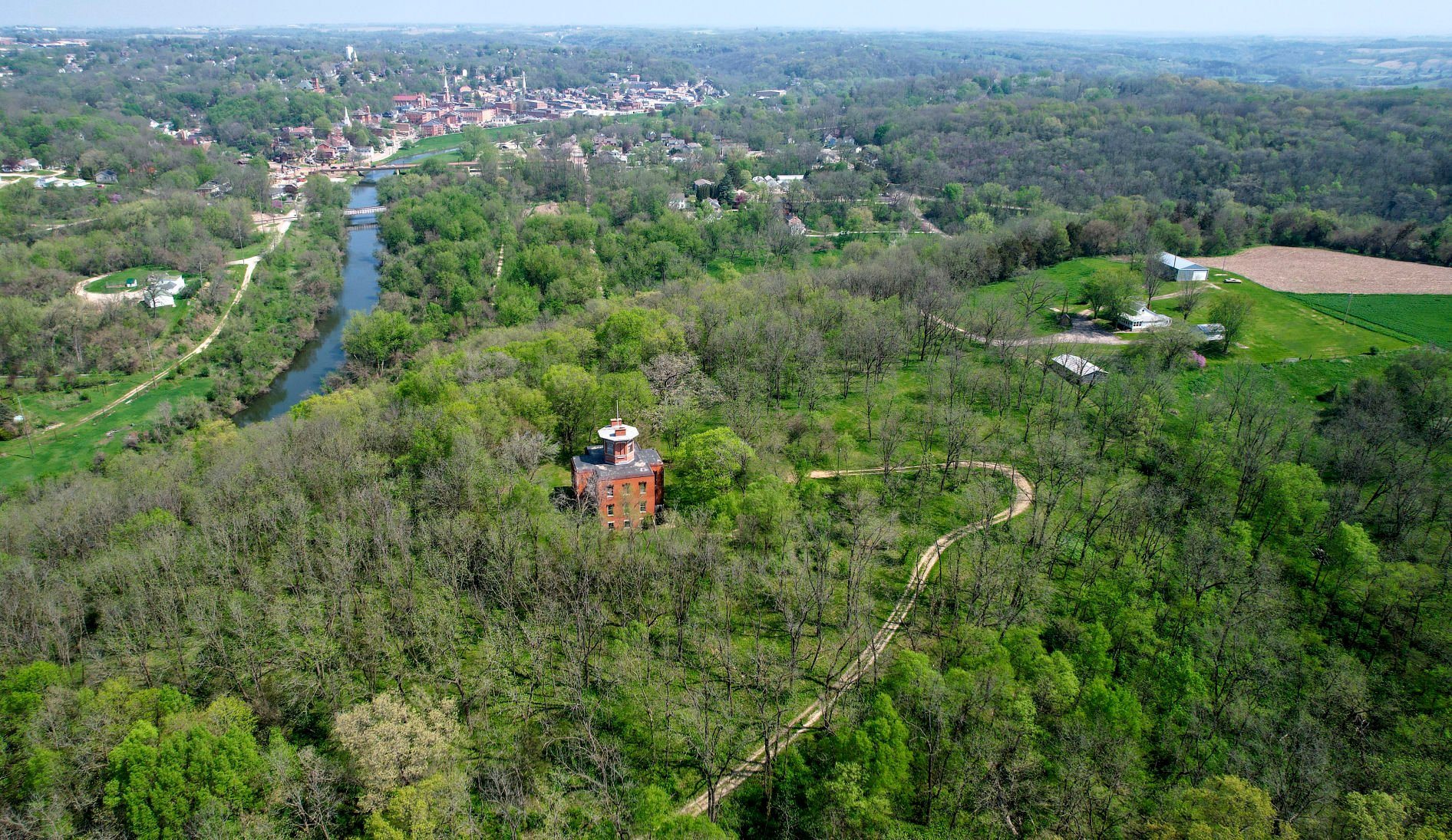GALENA, Ill. — The developers of a major resort in Galena can begin planting a vineyard — the first step in constructing the development — pending formal action later this month by the City Council.
Galena Zoning Board of Appeals members this week voted, 5-1, to approve the final plan for Phase 1A of The Parker, a substantial lodging project centered on the Galena Marine Hospital.
The vote came two days after City Council members approved the final reading of an annexation agreement to bring about 55 acres of the 80-acre property into city limits.
In addition to restoration of the hospital, the project involves four construction phases ending in more than 100 cottages, a café building, a restaurant/event space, outdoor dining areas, a vineyard, walking trails and other amenities.
The phase approved by the zoning board this week involves planting about 2,500 grape vines for the vineyard.
Project architect Jim Baranski, who is a zoning board member but recused himself from the vote, said developers will plant vines parallel to the land’s contours to minimize erosion. Pesticides, herbicides and fungicides will be applied only when necessary and using targeted methods.
“In general, we will be using best practices that are consistent with viticulture throughout the Midwest,” he said, later adding, “It would be consistent with any other (agricultural) use that is in this area.”
Eight people spoke in opposition to the project, citing concerns such as the potential for increased erosion, water runoff and aquifer contamination. Others noted perceived procedural errors in the zoning board and City Council’s previous approvals of the project and questioned why the vineyard was being approved separately from associated buildings such as the winery.
“This is a final plan. This is the forever thing, what they’re going to do and how it’s going to get done,” said neighbor Wendy Clark. “ … If this thing does happen, I would at least like to know that it happens with all the questions answered, all the T’s crossed and all the I’s dotted.”
Zoning board members then discussed whether the final vineyard plan conformed with the approved preliminary plan and other applicable development and construction codes, ordinances and policies.
Although Board Member Kimberly Cook said she felt the plan met codes and site plan criteria, she believed it had “significant” changes from its preliminary iteration, as the vineyard’s location was moved.
Board Chairman John Rosenthal said since the vineyard was included in the preliminary plan, he disagreed that moving its location constituted a change. He also felt water runoff and chemical usage was likely to be no greater than that of any other farmer.
Board Member Bill Nybo, who cast the dissenting vote, said he felt giving final approval for the vineyard was “putting the cart before the horse.”
“I’d like to see more engineering studies and questions answered on a final application before we start going ahead of ourselves on the planting of the vineyard,” he said.
City Administrator Mark Moran said he expects ordinances to be presented at the May 23 City Council meeting to formally annex and rezone the property — both of which the council has supported in past votes. If those ordinances are approved, developers could start planting the vineyard.


